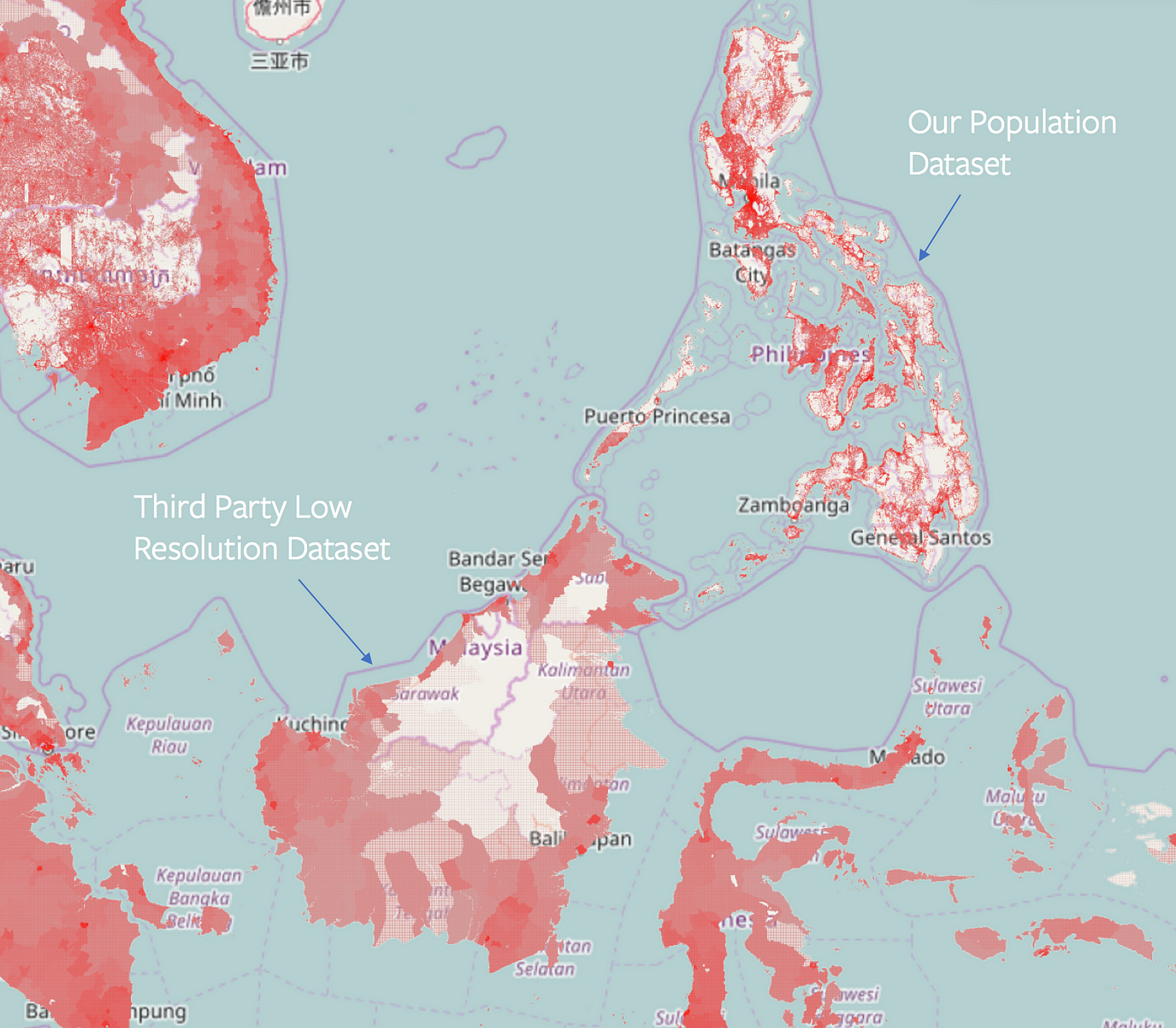Alex Heath

Facebook has the goal of eventually saturating the entire world’s population with its services.
That strategy was on display Tuesday, when the social network announcedthat it had used artificial intelligence and satellite imagery to build a hi-res population map for the entire continent of Africa.
The next step? Facebook told Cheddar that within “months” the company will have mapped the entire world’s population.
“It’s months, not years,” James Gill, a Facebook software engineer who is working on the project, said when asked about the timeline.
Creating such a large map—which involves training Facebook’s advanced AI systems, pulling high-resolution satellite imagery, and working with local governments and NGOs—represents the incredible degree to which Facebook works to bring internet access to far corners of the globe.
Interestingly, Facebook isn’t keeping its maps confidential. It’s sharing them openly and freely with anyone. That means nonprofits, telecoms, researchers, and even internet competitors like Google could potentially leverage the map data to further their own ends.
“When connectivity increases, everyone—including Facebook—wins, right?” said Gill. “And so if other people can use this to improve development of connectivity, then that’s great for everyone, including us.”
Laura McGorman, a public policy manager in Facebook’s “Data for Good” division, told Cheddar that another goal of the mapping project is to help aid humanitarian organizations like the Red Cross, which used Facebook’s map to aid a measles and rubella campaign in the East African country of Malawi.
“This is part of a broader effort here to build data products that have social impact around the world,” said McGorman.
She noted that Facebook user data is not used in the creation or maintaining of the maps, and that the company consults with NGOs to determine where it shouldn’t publish maps to protect “vulnerable populations.” For example, in areas of Africa where there is currently civil unrest, like Sudan and Somalia, Facebook does not show population density.
 Facebook claims that its population density maps are much more precise than pre-existing maps.
Facebook claims that its population density maps are much more precise than pre-existing maps.
By openly mapping the world’s population, Facebook is acting more like an information platform for other companies to build their connectivity efforts upon. Local telecoms, for example, have already used Facebook’s data to determine how to deploy wireless service in rural parts of Africa, according to Gill.
“We had a time where they thought this village had 10,000 people, but it actually had about 40,000,” he said. “So that changed their calculus as to whether it made sense to deploy infrastructure there.”
He noted that only a “handful” of companies in the world have the technical capability of completing such a mapping endeavor. And none have been public about their work like Facebook.
“Development of connectivity is a win-win situation”
Facebook’s mapping efforts also benefit its own business interests, of course. Depending on the population density around a certain area, Facebook could use the data to determine whether it makes sense to deploy WiFi hotspots or bring a local telecom in to build more persistent cellular coverage. Facebook has tried many of its own approaches around connectivity over the years, from a failed internet service in India to large drones capable of beaming down nternet access. It was recently reportedthat the company aims to lay an underwater internet cable around the entire continent of Africa.
Even as Facebook is regularly besieged by data privacy scandals and regulators, its connectivity efforts are a reminder of just how global the company has become. Tellingly, Facebook’s public framing of the Africa map this week focuses more on the humanitarian benefits versus its original 2016 announcement on creating maps, which focused mostly on discovering populations that needed internet connectivity.
“Development of connectivity is a win-win situation,” said Gill. “So if this spurs development in underdeveloped countries, we win. Google wins. The country wins. A lot of people win.”
No comments:
Post a Comment